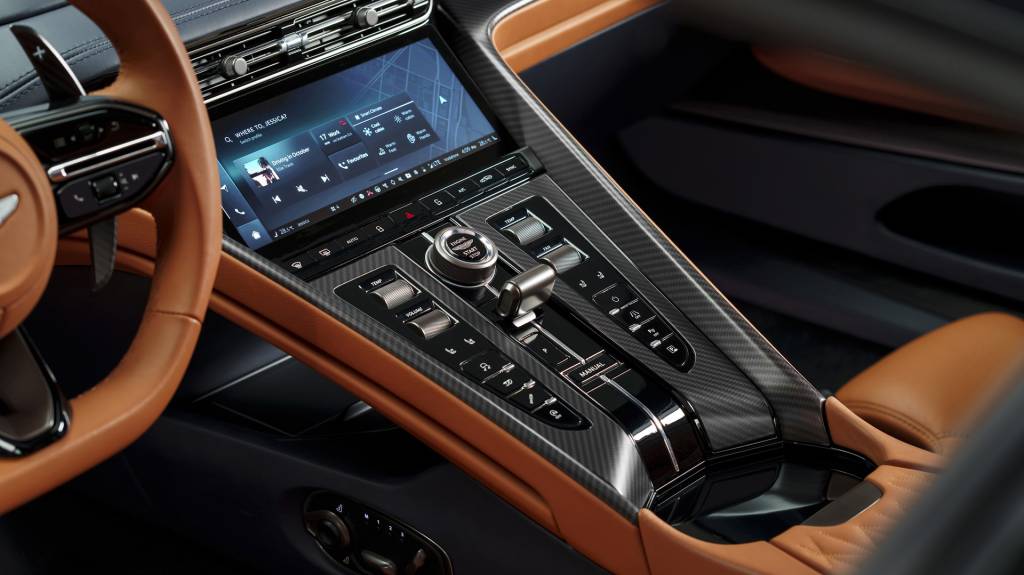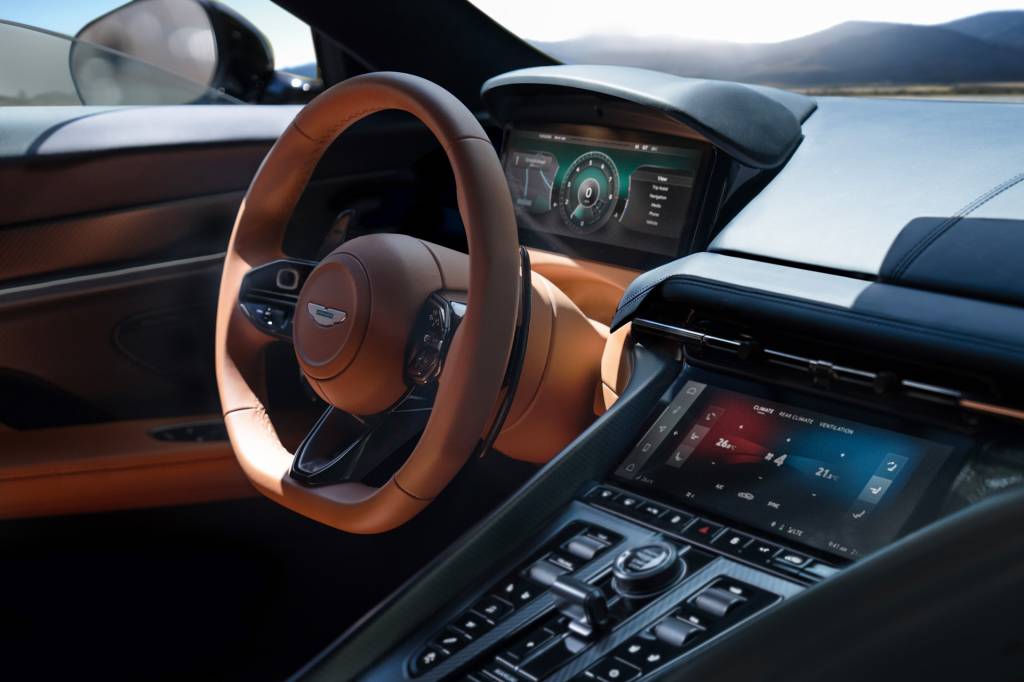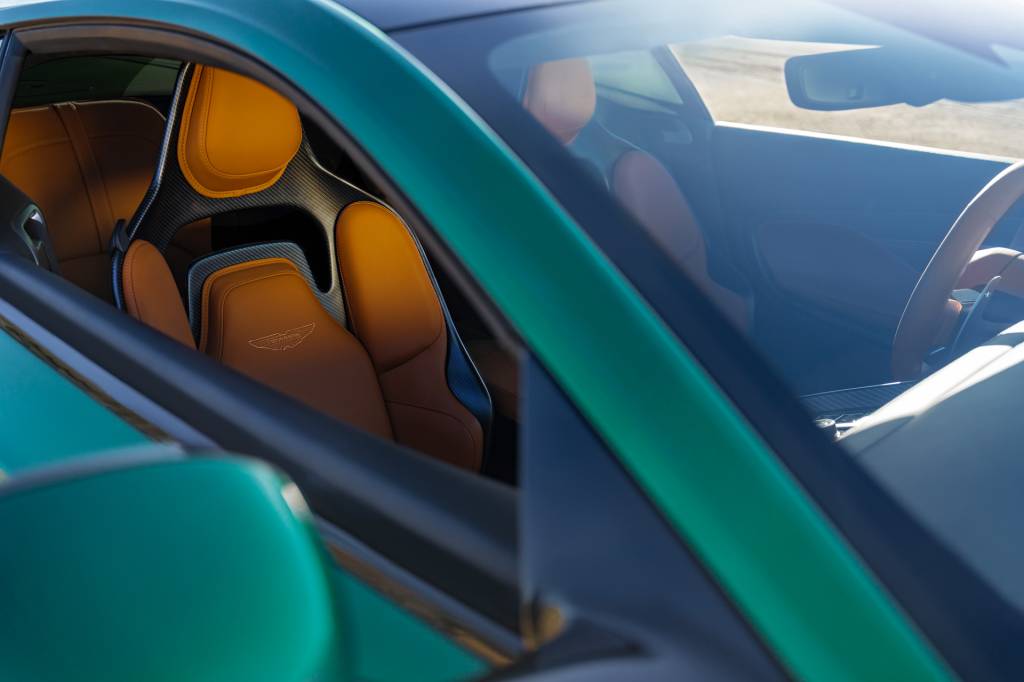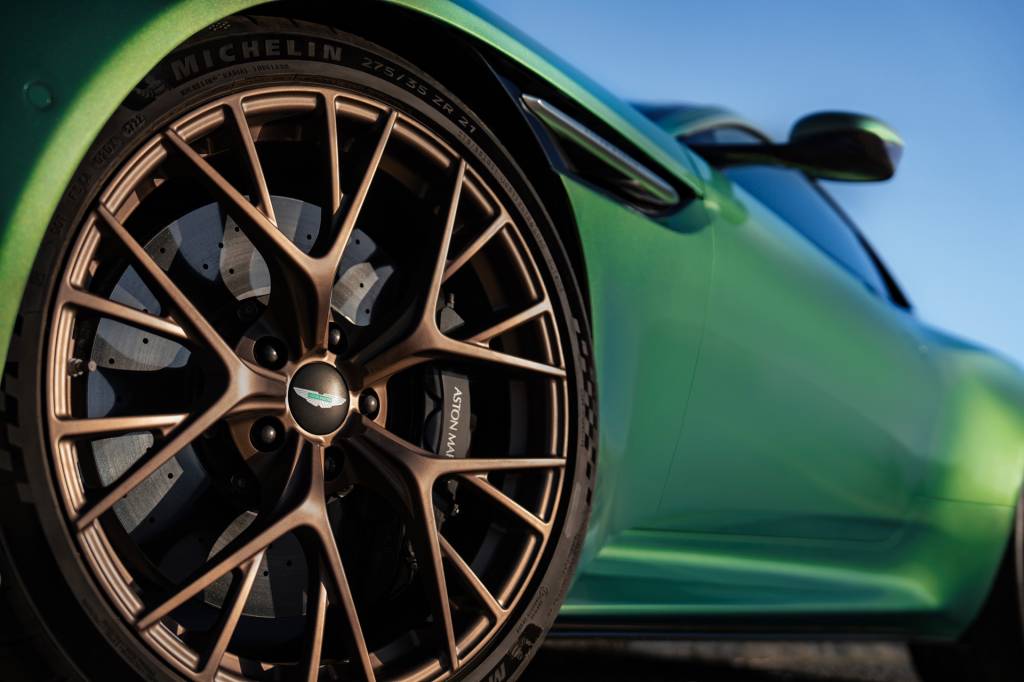Aston Martin on Wednesday revealed the DB12 as the latest in a long line of DB-badged grand tourers.
The new car’s arrival marks 75 years since David Brown, whose initials are the basis of the DB naming strategy, helped rescue Aston Martin after World War II and launched the 2-Liter, which later became to be known the DB1.
The arrival also ushers in the start of a renewal and expansion of Aston Martin’s sports car lineup. A new Vantage is also just around the corner, and in the coming years Aston Martin will launch both the plug-in hybrid Valhalla supercar and an electric sports car.
The DB12 is the direct successor of the DB11 launched seven years ago, and is more of a heavy update than a true redesign. Most of the DB11’s design carries over with some tweaks, but there’s a new front end that brings a sense of power and potency that the DB11 lacked. This is thanks mostly to the much larger grille and new hood with prominent strakes. The track is also wider front and rear, up six and 22 millimeters, respectively. The new headlights feature matrix LED technology.
However, while the DB11 offered the choice of V-8 or V-12 power, the DB12, at least for now, has been announced exclusively with the V-8. It’s the familiar turbocharged 4.0-liter V-8 that Aston Martin sources from Mercedes-Benz AMG, and here it’s tuned to deliver 671 hp, or roughly 40 hp more than the turbocharged 5.2-liter V-12 that powered the DB11. The V-8 also saves around 220 pounds of weight thanks to its lower cylinder count.
The DB12’s engine powers the rear wheels via an 8-speed automatic transmission mounted at the rear for better balance.
Performance claims include 0-60 mph acceleration in 3.5 seconds and a top speed of 202 mph.
Aston Martin DB12
Major changes were also made to the chassis, including a new suspension design with adjustable dampers and stiffer anti-roll bars. An electronic rear differential has also been fitted, a first for a DB-badged car, to help improve agility through the corners. Working closely with the adjustable dampers and the e-diff are electronic power steering and adjustable electronic stability control systems, which help deliver comfort in the car’s tamer drive modes but can improve responsiveness and body control when Sport and Sport+ modes are selected.
Attached at each corner is a 21-inch forged wheel, available in one of three patterns and in a range of colors and finishes. Thanks to their lightweight designs, the wheels help save approximately 17 pounds compared to the DB11’s 20-inch offerings. The standard rubber is Michelin’s new Pilot Sport S 5 tires, but with a unique compound for Aston Martin. They measure 275/35 up front and a meaty 315/30 at the rear.
The standard brake package features cast-iron rotors measuring close to 16 inches up front and featuring grooved and drilled faces for improved thermal capacity. Carbon-ceramic rotors can be added as an alternative, helping to improve braking performance while also saving close to 60 pounds in unsprung mass.

Aston Martin DB12

Aston Martin DB12

Aston Martin DB12
Perhaps one of the most important changes in the DB12 is a new interior brimming with the latest technology, as the DB11 was often criticized for relying on outdated technology borrowed from Mercedes-Benz.
There’s a more elegant layout characterized by clean horizontal lines, as well as a digital instrument cluster and a central touchscreen that controls Aston Martin’s infotainment system. Developed in-house, the new system offers full support for Apple CarPlay and Android Auto, as well as over-the-air updates. There are also plenty of physical controls in the DB12 for frequently used functions, including a knurled rotary controller for the drive mode selector. Carbon fiber is used as an accent material, while most of the cabin’s surfaces are trimmed in more traditional hand-stitched Bridge of Weir leather. Alcantara can also be selected.
An 11-speaker audio system features as standard but a 15-speaker Bowers & Wilkins system is available. Meanwhile, the navigation system, which features 3D mapping, features online connectivity for quicker and more informative route information. Aston Martin has also developed a new app (for iOS and Android devices) with which owners can search a destination on their smartphone and send it directly to the car. The app also enables other areas of interaction with the car, Aston Martin said.

Aston Martin DB12
Driver-assist features include handy items like forward collision warning, automatic emergency braking, active lane control, blind spot and cross traffic warning, and traffic sign recognition. A surround-view camera is also included.
Deliveries of the DB12 are scheduled to start in the third quarter of the year. Pricing information will be announced closer to that date.
A DB12 Volante convertible is also in the pipeline, and there are rumors hybrid technology may eventually make its way into the DB12 line.
